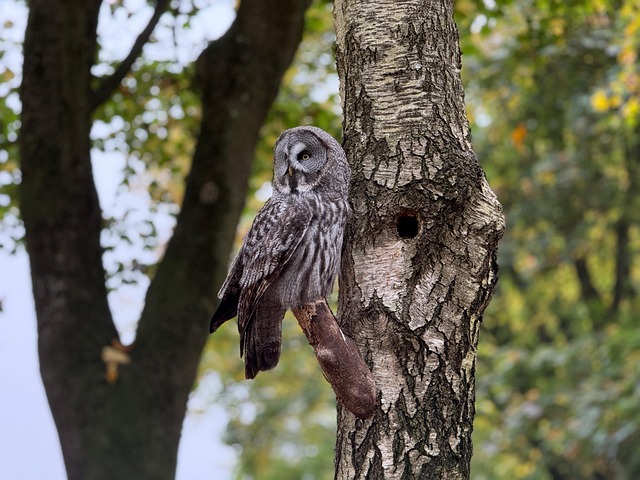An arborist in Allen, TX, is vital for maintaining the city's landscape, addressing tree diseases that can impact both trees' health and the broader ecosystem. They identify issues like fungal infections and bacterial cankers through expert inspections, offer tailored treatments, and provide preventive care strategies. By focusing on each tree species' needs, strategic pruning, regular inspections, and proper maintenance, arborists ensure Allen's urban forest remains vibrant and sustainable for residents and visitors alike, enhancing the overall aesthetics of the city. For proactive tree disease prevention and care, trust a qualified arborist in Allen, TX.
In Allen, TX, understanding diseased trees is crucial for maintaining healthy urban forests. This article delves into common tree issues, their impacts, and how an arborist plays a vital role in diagnosis and treatment. We explore effective tree care practices to prevent and promote long-term health, emphasizing the importance of professional expertise from local arborists in Allen, TX. By adopting best practices, residents can ensure their trees thrive while enhancing the overall beauty and resilience of the community landscape.
- Understanding Diseased Trees: Common Issues and Their Impact
- The Role of an Arborist in Allen, TX: Diagnosis and Treatment
- Effective Tree Care Practices for Prevention and Long-Term Health
Understanding Diseased Trees: Common Issues and Their Impact

Trees are a vital part of any landscape, providing beauty, shade, and environmental benefits. However, they can also be susceptible to various diseases that can impact their health and appearance. An arborist in Allen, TX, is equipped to identify and address these issues, ensuring the longevity of your trees. Common tree diseases include fungal infections, bacterial infestations, and viral disorders, each with distinct symptoms and causes. For instance, fungal diseases often manifest as leaf spots, wilting, or decay at the base of the trunk, while bacterial infections may cause cankers and galls.
These maladies not only affect the tree’s physical condition but also have broader ecological implications. They can weaken trees, making them more susceptible to pests and extreme weather events, and even pose risks to human health in some cases. An arborist Allen TX residents trust can help homeowners recognize early signs of disease, recommend appropriate treatment options, and provide preventive care strategies. Regular inspections, proper pruning techniques, and timely interventions are key to managing diseased trees effectively.
The Role of an Arborist in Allen, TX: Diagnosis and Treatment

In Allen, TX, an arborist plays a vital role in maintaining and enhancing the city’s urban landscape. When it comes to diseased trees, they are equipped with the knowledge and tools to diagnose and treat various tree health issues. An Arborist Allen TX professionals start by conducting thorough inspections, examining the tree’s leaves, branches, trunk, and root system for signs of disease or infestation. They use their expertise to identify specific ailments like fungal infections, insect damage, or nutrient deficiencies that may be affecting the tree’s overall health.
Once a diagnosis is made, arborists employ a range of treatment options tailored to the particular issue. This can involve pruning diseased branches, applying fungicides or pesticides, providing deep root fertilization, or even recommending and executing tree removal if the damage is severe and recovery unlikely. Their goal is not only to save individual trees but also to preserve the overall health and beauty of Allen’s urban forest, ensuring that both residents and visitors enjoy a vibrant and sustainable environment.
Effective Tree Care Practices for Prevention and Long-Term Health

At an arborist Allen TX, preventing tree diseases is a key part of our expertise. Effective tree care begins with understanding each species’ unique needs and fostering optimal growing conditions. Regular inspection is crucial to identify potential issues early on. Pruning, for instance, not only shapes the tree but also removes diseased or damaged branches, halting the spread of infections. Proper watering and mulching are essential for maintaining soil health, ensuring trees have access to necessary nutrients and moisture. Adequate sunlight exposure is another vital aspect; proper placement and spacing of trees can prevent competition for resources and reduce disease vulnerability.
Long-term tree health relies on proactive maintenance. Annual check-ups by an arborist Allen TX specialist can catch problems before they become severe. Fertilization and soil testing help address nutrient deficiencies, while pest management strategies target insects and fungi that may cause harm. Remember, a healthy tree is better equipped to resist diseases; consistent care and attention are investments in your landscape’s longevity and beauty.
When dealing with diseased trees in Allen, TX, understanding the common issues and their impact is crucial. An arborist plays a vital role in diagnosing and treating these problems, ensuring the long-term health of your trees. By implementing effective tree care practices, you can prevent diseases and foster robust growth. For expert assistance, consider hiring an Arborist Allen TX to navigate this intricate landscape and preserve the beauty and vitality of your trees.






